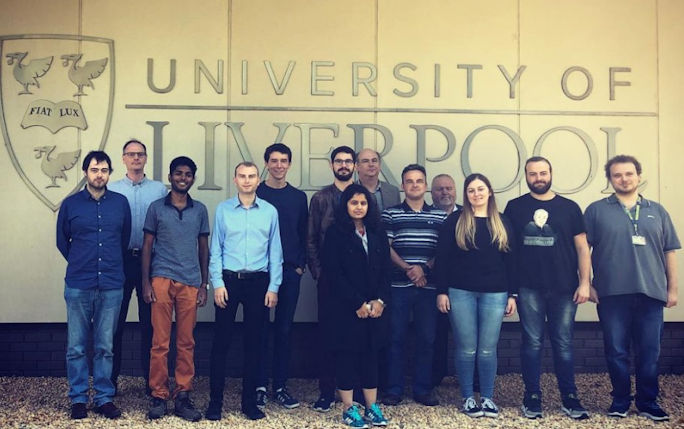Our Department welcomes 2nd LIV.DAT cohort!

Since its foundation in 2017, the Liverpool Big Data Science (LIVDAT) Centre for Doctoral Training (CDT) has quickly established itself a hub for training students in managing, analysing and interpreting large, complex datasets and high rates of data flow.
It features a unique training approach addressing some of the biggest challenges in data intensive science to tackle a growing skills gap in this important area. 14 students started in 2017 and 10 additional students, recruited from all over the world, have now started on 1st October 2018, making LIV.DAT one of the largest CDT's in the country.
Our new projects stretch across the two main work packages HPC/Machine Learning, where projects include pulse shape analysis algorithms for decay spectroscopy of short-lived nuclei, advanced optics concepts for HLLHC, and Betatron radiation emission from underdense plasma, as well as Data Analysis, where students will work on Search for Higgs Boson decays to invisible particles and Axion searches in rare Higgs decays, to only name a few.
On Wednesday, 10th October, a formal kick-off meeting for all new LIV.DAT students was organised in order to explain the wider training concept of the centre and the roles of the people involved in LIV.DAT. Professor Carsten Welsch, LIV.DAT Director, started the event with a welcome address and general overview of the CDT and the department’s experience in the implementation of successful postgraduate training programmes. He was followed by Deputy Director Professor Chris Collins from Liverpool John Moores University (LJMU) who highlighted the aspects that are particularly relevant for the astrophysics students and the role of LJMU in the CDT. Finally, LIV.DAT’s second Deputy Director Dr David Hutchcroft gave an overview of the training plan, modules that will be open to all students, and planned cohort-wide activities, such as a national kick-off meeting in Edinburgh later this month which will join Big Data Science students from all over the UK.